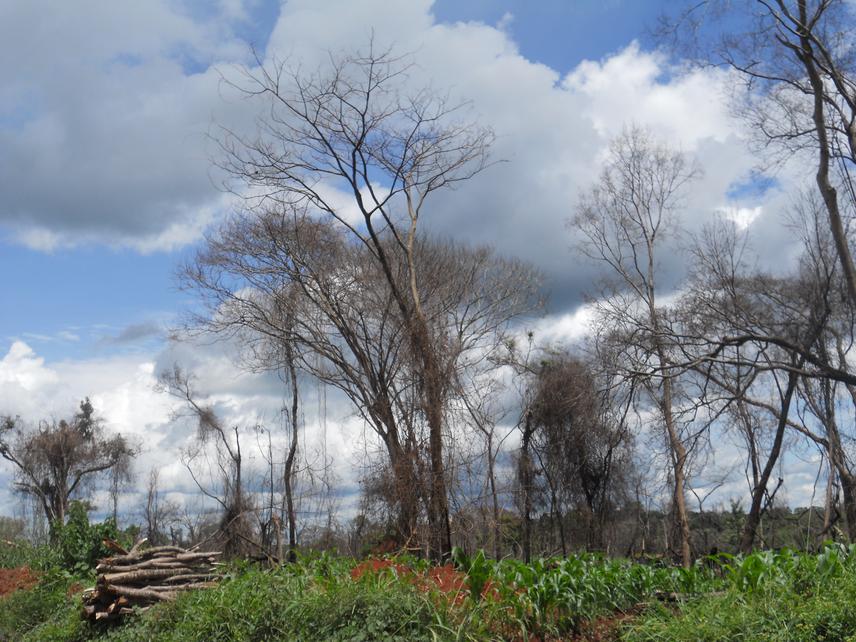Raymond Katebaka
Other projects
18 Feb 2009
Understanding the Impact of Forest Fragmentation on Forest Hornbills of Uganda
2 May 2012
Enhancing Community Participation to Conserve Fragmented Forests in Central Uganda
26 Jan 2017
Sustaining Community Participation in Collaborative Forest Management in Central Uganda
The Booster Grant Project of phase III Rufford Grant aims at “Promoting collaborative forest management in communities of degraded forests central Uganda”. The project sets to address the forest illegal activities that are estimated to claim 57600ha of natural forests every year.

Kyansozi CFR cleared and burned for maize growing.
Natural Central Forests Reserves (NCFR) have continuously been degraded. This is triggered by illegal anthropogenic activities such logging leading current estimates 80% of timber trade; charcoal burning among others. The illegal actions cause the government loss an equivalent of USD 1million in revenue. Yet forest sector is identified as one of the primary growth areas under the Uganda National Development Plan (NDP). To counteract the degradation and deforestation continual in the region and enable Sustainable Forest Management (SFM), African Union of Conservationists (AUC), a couple of years designed a forest biodiversity indicator, through Understanding the impact of forest fragmentation using forest hornbills (birds) of Uganda; that instigated to “Enhancing community participation in forest conservation”; and subsequently to the current project “Promoting Collaborative Forest Management in Degraded Forests of Central Uganda”. This project addresses the various requests made by the communities in previous projects. As a part they underpinned on-going poor forest governance systems and emphasized that there is an urgent need to give the communities a mandate to manage the rapid rates of deforestation in their areas.
This new project tackles the issue of the increasing population needs of the communities adjacent to Forests. The project will enhance community relationships with the National Forests Authority (NFA) and legal management regimes by working with Forest Sector Support Department (FSSD) in Uganda. The work targets to increase community benefits from use rights of the forests, allowing sustainable harvesting of forest resources, and reforesting the degraded areas. Environmental education in communities will form a core part of project implementation through a series of workshops, and work with existing environmental committees, along with further community members, who will be trained and awareness raised in relation to implementation of Collaborative Forest Management (CFM) projects. The communities are anticipated to put in place forest resource use sharing agreements with NFA under the advice of FSSD. This will achieve mainstreaming governance issues with the government institutions. The project plans to design harmonized ways in which forest resources can be collaboratively utilized for maximum benefit to all stakeholders.
Community activities working with NFA are expected to enhance forest conservation through reforestation of degraded areas. This will contribute to habitat management of some of the most biologically rich in this part of Africa; and make a long-term contribution towards forest biodiversity conservation in the region.